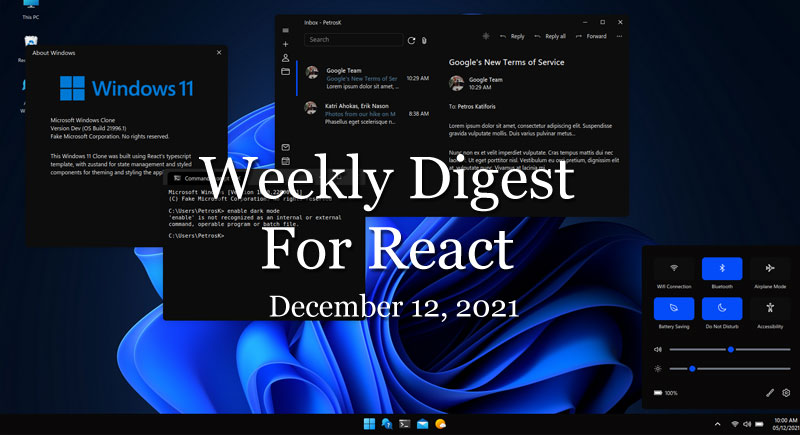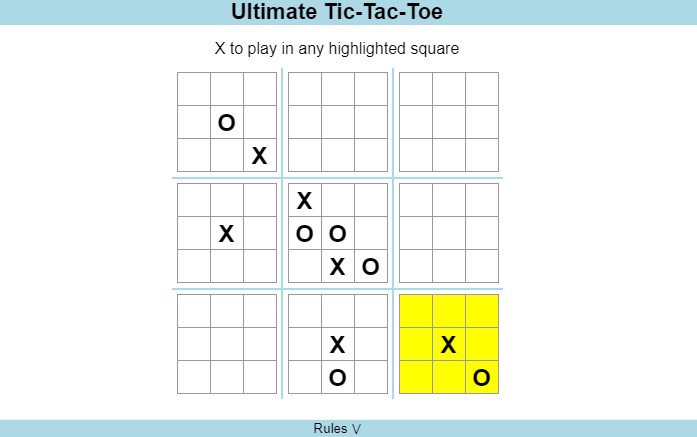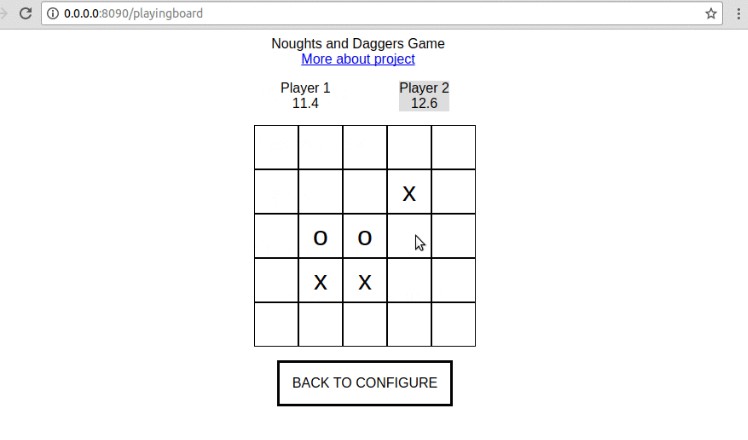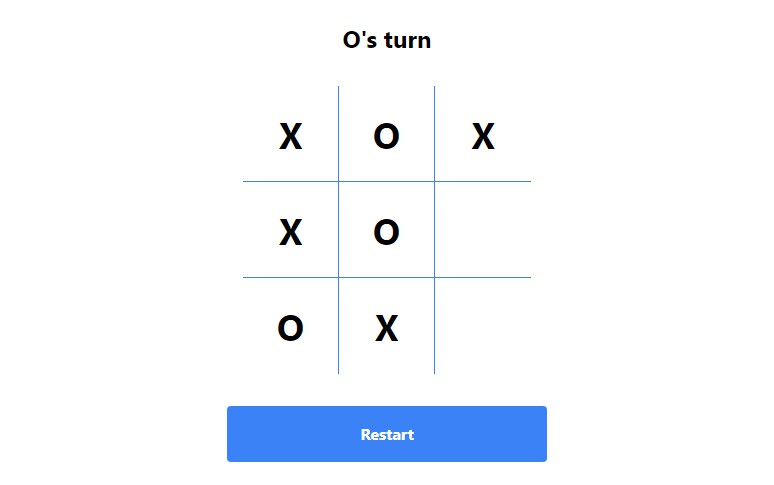uttt.ai
AlphaZero-like solution for playing Ultimate Tic-Tac-Toe in the browser.
This project is a loose adaptation of the original AlphaZero published by Deepmind. It follows key ideas behind the AlphaZero, such as generating training data from self-play or using single neural network to guide the Monte-Carlo Tree Search (MCTS) algorithm. However, the actual implementation of these ideas is different due to limitations on the available computing power, specifically:
- AI self-play training must fit on a personal computer within a reasonable time (several weeks)
- AI inference must run in the browser on the client-side hardware within a reasonable time (a few seconds)
You can play Ultimate Tic-Tac-Toe with the AI on the official project website: https://uttt.ai.
Overview
The project overview in chronological order:
Differences from the original AlphaZero
- Much smaller Policy-Value Network architecture designed specifically for playing Ultimate Tic-Tac-Toe in the browser with only 5 million parameters (20 MB): utttpy/selfplay/policy_value_network.py.
- Total separation of self-play data generation process from the Policy-Value Network training (offline RL).
- More MCTS simulations per position for training (self-play data quality over quantity).
- The initial self-play dataset was generated from pure MCTS simulations (random playouts are faster and better than random Policy-Value Network predictions).
- Search simulations are synchronous, single-threaded and sequential.
- Enabled data augmentation by flipping the board during Policy-Value Network training.
- Value target for MSE loss function is defined as the root’s mean state value rather than the game outcome.
- Masked KL divergence loss for policy head instead of Cross Entropy loss.
- Auxiliary policy head loss for predicting action values next to action logits.
Evaluation
Because there is no external benchmark, a custom evaluation setup has been created to assess the overall AI performance in Ultimate Tic-Tac-Toe.
Evaluation setup
Assessing the overall AI performance is done by playing tournaments between AIs. There are 3 AIs:
- MCTS – Monte-Carlo Tree Search with random playouts
- NMCTS1 – (Neural) Monte-Carlo Tree Search with Policy-Value Network guidance after training on stage1-mcts dataset
- NMCTS2 – (Neural) Monte-Carlo Tree Search with Policy-Value Network guidance after retraning on stage2-nmcts dataset
And 3 tournaments:
- NMCTS1 vs MCTS
- NMCTS2 vs MCTS
- NMCTS2 vs NMCTS1
Each AI is represented in two versions: quick and strong (to get more nuanced comparison).
| AI | version | num simulations | inference time |
|---|---|---|---|
| MCTS | 1M (quick) | 1,000,000 | 5.0s |
| MCTS | 10M (strong) | 10,000,000 | 51.4s |
| NMCTS | 1k (quick) | 1,000 | 4.4s |
| NMCTS | 10k (strong) | 10,000 | 17.8s |
Inference times were measured on Intel i7-10700K and NVIDIA GeForce RTX 2080 Ti for single-threaded C++ implementations of MCTS and NMCTS (GPU is used by NMCTS to run Policy-Value Network inference).
Each tournament consist of 4 matches (all combinations of quick/strong vs quick/strong):

Each match consist of 100 games initialized from 50 unique positions and each position is played twice (AIs swap sides for the second playthrough).
Initial evaluation positions are defined here: utttpy/selfplay/evaluation_uttt_states.py.
Evaluation results
Evaluation results aggregated
Takeaways:
- Training on MCTS evaluations (stage1-mcts dataset) was successfull: NMCTS1 defeats MCTS.
- Retraining on self-play data (stage2-nmcts dataset) was successfull: NMCTS2 improves upon NMCTS1 consistently.
- NMCTS2 beats MCTS baseline even with 4 orders of magnitude difference in the number of simulations (1k vs 10M).
- Next stage (NMCTS3) is needed to see if and how much improvement is possible over NMCTS2.
NMCTS2 is deployed on the https://uttt.ai.
Datasets
There are 2 datasets:
stage1-mcts: 8 mln evaluated positions generated by the Monte-Carlo Tree Search self-play and used to train the Policy-Value Network from scratch.stage2-nmcts: 8 mln evaluated positions generated by the Neural Monte-Carlo Tree Search self-play and used to retrain the Policy-Value Network.
Both datasets are available for download here.
Read more about datasets here: datasets/README.md.
Training
Training artifacts are available for download here.
Requirements
This project was developed using:
- Ubuntu 20.04
- Python 3.8
- 2x NVIDIA GeForce RTX 2080 Ti (CUDA 11)
- Intel i7-10700K (8 cores x 3.80GHz)
- PyTorch >= 1.8
- Node.js 14.18.1
- npm 8.1.1
- React 17.0.2
- g++ 9.3.0








